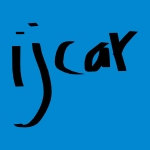Stem elementari$ (all stems)
56 papers:
 FM-2015-0009ZZZ #abstraction #hybrid
FM-2015-0009ZZZ #abstraction #hybrid- Abstraction of Elementary Hybrid Systems by Variable Transformation (JL, NZ, HZ, LZ), pp. 360–377.
 DHM-HM-2015-KurataniHHKUGH #analysis #comparison #process
DHM-HM-2015-KurataniHHKUGH #analysis #comparison #process- Expert vs. Elementary Skill Comparison and Process Analysis in VaRTM-Manufactured Carbon Fiber Reinforced Composites (YK, KH, TH, TK, TU, AG, HH), pp. 133–142.
 DUXU-UI-2015-AmaralBBM #concept #human-computer #women
DUXU-UI-2015-AmaralBBM #concept #human-computer #women- Introducing Computer Science to Brazilian Girls in Elementary School Through HCI Concepts (MAA, SAB, CB, CM), pp. 141–152.
 LCT-2015-HiramatsuIISS #case study #communication #mobile #using
LCT-2015-HiramatsuIISS #case study #communication #mobile #using- A Study to Activate Communication by Using SNS on Mobile Phone — An Essay Lesson at the Elementary School (YH, AI, KI, FS, FS), pp. 492–502.
 CSL-2015-BaazF #logic
CSL-2015-BaazF #logic- Elementary Elimination of Prenex Cuts in Disjunction-free Intuitionistic Logic (MB, CGF), pp. 94–109.
 CHI-2014-ShelleyLMDSS #data analysis #design #student
CHI-2014-ShelleyLMDSS #data analysis #design #student- Information-building applications: designing for data exploration and analysis by elementary school students (TS, LL, TM, CD, BLS, AS), pp. 2123–2132.
 LCT-NLE-2014-Choffat-Durr #distance #process
LCT-NLE-2014-Choffat-Durr #distance #process- Distance Exchange Projects at Elementary School: A Focus on a Co-learning Process (ACD), pp. 380–387.
 ICML-c2-2014-YangLR #linear
ICML-c2-2014-YangLR #linear- Elementary Estimators for High-Dimensional Linear Regression (EY, ACL, PDR), pp. 388–396.
 ICML-c2-2014-YangLR14a #matrix
ICML-c2-2014-YangLR14a #matrix- Elementary Estimators for Sparse Covariance Matrices and other Structured Moments (EY, ACL, PDR), pp. 397–405.
 LICS-CSL-2014-LazicS #branch
LICS-CSL-2014-LazicS #branch- Non-elementary complexities for branching VASS, MELL, and extensions (RL, SS), p. 10.
 HCI-III-2013-ItoON #biology #interactive
HCI-III-2013-ItoON #biology #interactive- A Method for Promoting Interaction Awareness by Biological Rhythm in Elementary School Children (KI, KO, SN), pp. 421–430.
 CSL-2013-MichaliszynO #logic #transitive
CSL-2013-MichaliszynO #logic #transitive- Elementary Modal Logics over Transitive Structures (JM, JO), pp. 563–577.
 MLDM-2012-ForczmanskiF #classification #distance #representation
MLDM-2012-ForczmanskiF #classification #distance #representation- Classification of Elementary Stamp Shapes by Means of Reduced Point Distance Histogram Representation (PF, DF), pp. 603–616.
 LICS-2012-MichaliszynO #decidability #logic
LICS-2012-MichaliszynO #decidability #logic- Decidable Elementary Modal Logics (JM, JO), pp. 491–500.
 ICSM-2011-WangPXZ #case study #feature model #process
ICSM-2011-WangPXZ #case study #feature model #process- An exploratory study of feature location process: Distinct phases, recurring patterns, and elementary actions (JW, XP, ZX, WZ), pp. 213–222.
 SAC-2011-QueirozGRGQ #diagrams #education #interactive #interface
SAC-2011-QueirozGRGQ #diagrams #education #interactive #interface- Effects of scaffoldings on interactive diagram constructions in educational interface for elementary school teachers training (AEdMQ, ASG, CR, AG, SSdQ), pp. 1212–1213.
 TLCA-2011-MadetA #multi #thread #λ-calculus
TLCA-2011-MadetA #multi #thread #λ-calculus- An Elementary Affine λ-Calculus with Multithreading and Side Effects (AM, RMA), pp. 138–152.
 SAC-2010-Pham #geometry #proving
SAC-2010-Pham #geometry #proving- Similar triangles and orientation in plane elementary geometry for Coq-based proofs (TMP), pp. 1268–1269.
 CHI-2009-Pirolli #information management #social
CHI-2009-Pirolli #information management #social- An elementary social information foraging model (PP), pp. 605–614.
 CHI-2007-WigdorSFB #multi #visual notation
CHI-2007-WigdorSFB #multi #visual notation- Perception of elementary graphical elements in tabletop and multi-surface environments (DW, CS, CF, RB), pp. 473–482.
 OCSC-2007-Huang #case study #library #social
OCSC-2007-Huang #case study #library #social- Integrating Digital Library Resources in Elementary School Classrooms — A Case Study of Social Study Instruction (KHH), pp. 372–374.
 CADE-2007-Harrison #automation #proving #using
CADE-2007-Harrison #automation #proving #using- Automating Elementary Number-Theoretic Proofs Using Gröbner Bases (JH), pp. 51–66.
 LICS-2007-Hales #geometry #problem
LICS-2007-Hales #geometry #problem- Some Methods of Problem Solving in Elementary Geometry (TCH), pp. 35–40.
 CASE-2006-LiuWL #algorithm #performance #petri net #set
CASE-2006-LiuWL #algorithm #performance #petri net #set- A fast algorithm to find a set of elementary siphons for a class of petri nets (XL, AW, ZL), pp. 399–404.
 SAC-2006-DinechinLM #using #verification
SAC-2006-DinechinLM #using #verification- Assisted verification of elementary functions using Gappa (FdD, CQL, GM), pp. 1318–1322.
 CHI-2005-Louca #programming #student #syntax #usability
CHI-2005-Louca #programming #student #syntax #usability- The syntax or the story behind it?: a usability study of student work with computer-based programming environments in elementary science (LTL), pp. 849–858.
 TLCA-2005-BaillotT #algorithm #logic #type system
TLCA-2005-BaillotT #algorithm #logic #type system- A Feasible Algorithm for Typing in Elementary Affine Logic (PB, KT), pp. 55–70.
 TLCA-2005-CoppolaLR #call-by #logic #λ-calculus
TLCA-2005-CoppolaLR #call-by #logic #λ-calculus- Elementary Affine Logic and the Call-by-Value λ Calculus (PC, UDL, SRDR), pp. 131–145.
 DAC-2003-BullockM
DAC-2003-BullockM- An arbitrary twoqubit computation In 23 elementary gates or less (SSB, ILM), pp. 324–329.
 LICS-2003-PitermanV #decidability #future of #stack
LICS-2003-PitermanV #decidability #future of #stack- Micro-Macro Stack Systems: A New Frontier of Elementary Decidability for Sequential Systems (NP, MYV), p. 381–?.
 TLCA-2003-CoppolaR #logic #type system
TLCA-2003-CoppolaR #logic #type system- Principal Typing in Elementary Affine Logic (PC, SRDR), pp. 90–104.
 ICALP-2002-GastinM #logic
ICALP-2002-GastinM #logic- An Elementary Expressively Complete Temporal Logic for Mazurkiewicz Traces (PG, MM), pp. 938–949.
 DLT-2001-Choffrut
DLT-2001-Choffrut- Elementary Theory of Ordinals with Addition and Left Translation by ω (CC), pp. 15–20.
 IJCAR-2001-Lucke #named #set
IJCAR-2001-Lucke #named #set- Hilberticus — A Tool Deciding an Elementary Sublanguage of Set Theory (JL), pp. 690–695.
 TLCA-2001-CoppolaM #constraints #linear #logic #type system
TLCA-2001-CoppolaM #constraints #linear #logic #type system- Typing λ Terms in Elementary Logic with Linear Constraints (PC, SM), pp. 76–90.
 POPL-2000-AspertiCM #recursion
POPL-2000-AspertiCM #recursion- (Optimal) Duplication is not Elementary Recursive (AA, PC, SM), pp. 96–107.
 CSL-2000-Schuster #analysis
CSL-2000-Schuster #analysis- Elementary Choiceless Constructive Analysis (PS), pp. 512–526.
 CAV-1999-MatthewsL #algebra #architecture
CAV-1999-MatthewsL #algebra #architecture- Elementary Microarchitecture Algebra (JM, JL), pp. 288–300.
 LICS-1999-Simpson #axiom #category theory
LICS-1999-Simpson #axiom #category theory- Elementary Axioms for Categories of Classes (AKS), pp. 77–85.
 TLCA-1999-BaillotP #complexity #geometry #interactive
TLCA-1999-BaillotP #complexity #geometry #interactive- Elementary Complexity and Geometry of Interaction (PB, MP), pp. 25–39.
 POPL-1998-AspertiM #parallel #recursion #reduction
POPL-1998-AspertiM #parallel #recursion #reduction- Parallel β Reduction is not Elementary Recursive (AA, HGM), pp. 303–315.
 CSL-1998-Simpson
CSL-1998-Simpson- Computational Adequacy in an Elementary Topos (AKS), pp. 323–342.
 DLT-1997-IkedaA #complexity #on the
DLT-1997-IkedaA #complexity #on the- On the Complexity of Languages Definable by Hereditary Elementary Formal Systems (DI, HA), pp. 223–235.
 ICALP-1997-HarelS #logic #process
ICALP-1997-HarelS #logic #process- Computation Paths Logic: An Expressive, yet Elementary, Process Logic (abridged version) (DH, ES), pp. 408–418.
 CADE-1996-Vorobyov #bound
CADE-1996-Vorobyov #bound- An Improved Lower Bound for the Elementary Theories of Trees (SGV), pp. 275–287.
 LICS-1994-BaazFL #proving
LICS-1994-BaazFL #proving- A Non-Elementary Speed-Up in Proof Length by Structural Clause Form Transformation (MB, CGF, AL), pp. 213–219.
 CHI-1992-Brown #algorithm #parallel #sorting #visualisation
CHI-1992-Brown #algorithm #parallel #sorting #visualisation- An Introduction to Zeus: Audiovisualization of Some Elementary Sequential and Parallel Sorting Algorithms (MHB), pp. 663–664.
 ALP-1992-Lescanne #term rewriting #termination
ALP-1992-Lescanne #term rewriting #termination- Termination of Rewrite Systems by Elementary Interpretations (PL), pp. 21–36.
 GG-1990-Engels #database
GG-1990-Engels #database- Elementary Actions on an Extended Entity-Relationship Database (GE), pp. 344–362.
 PLILP-1990-TarauB #logic programming #source code
PLILP-1990-TarauB #logic programming #source code- Elementary Logic Programs (PT, MB), pp. 159–173.
 CSL-1989-Ambos-SpiesY #polynomial #recursion #set
CSL-1989-Ambos-SpiesY #polynomial #recursion #set- Honest Polynomial-Time Degrees of Elementary Recursive Sets (KAS, DY), pp. 1–15.
 CSL-1987-Jager #induction
CSL-1987-Jager #induction- Induction in the Elementary Theory of Types and Names (GJ), pp. 118–128.
 STOC-1984-Ben-OrKR #algebra #complexity #geometry
STOC-1984-Ben-OrKR #algebra #complexity #geometry- The Complexity of Elementary Algebra and Geometry (Preliminary Abstract) (MBO, DK, JHR), pp. 457–464.
 ICALP-1984-StreettE #calculus #μ-calculus
ICALP-1984-StreettE #calculus #μ-calculus- The Propositional μ-Calculus is Elementary (RSS, EAE), pp. 465–472.
 ICSE-1981-Howden #testing
ICSE-1981-Howden #testing- Completeness Criteria for Testing Elementary Program Functions (WEH), pp. 235–243.
 STOC-1973-Oppen #bound
STOC-1973-Oppen #bound- Elementary Bounds for Presburger Arithmetic (DCO), pp. 34–37.
 FM-2015-0009ZZZ #abstraction #hybrid
FM-2015-0009ZZZ #abstraction #hybrid DHM-HM-2015-KurataniHHKUGH #analysis #comparison #process
DHM-HM-2015-KurataniHHKUGH #analysis #comparison #process DUXU-UI-2015-AmaralBBM #concept #human-computer #women
DUXU-UI-2015-AmaralBBM #concept #human-computer #women LCT-2015-HiramatsuIISS #case study #communication #mobile #using
LCT-2015-HiramatsuIISS #case study #communication #mobile #using CSL-2015-BaazF #logic
CSL-2015-BaazF #logic CHI-2014-ShelleyLMDSS #data analysis #design #student
CHI-2014-ShelleyLMDSS #data analysis #design #student LCT-NLE-2014-Choffat-Durr #distance #process
LCT-NLE-2014-Choffat-Durr #distance #process ICML-c2-2014-YangLR #linear
ICML-c2-2014-YangLR #linear ICML-c2-2014-YangLR14a #matrix
ICML-c2-2014-YangLR14a #matrix LICS-CSL-2014-LazicS #branch
LICS-CSL-2014-LazicS #branch HCI-III-2013-ItoON #biology #interactive
HCI-III-2013-ItoON #biology #interactive CSL-2013-MichaliszynO #logic #transitive
CSL-2013-MichaliszynO #logic #transitive MLDM-2012-ForczmanskiF #classification #distance #representation
MLDM-2012-ForczmanskiF #classification #distance #representation LICS-2012-MichaliszynO #decidability #logic
LICS-2012-MichaliszynO #decidability #logic ICSM-2011-WangPXZ #case study #feature model #process
ICSM-2011-WangPXZ #case study #feature model #process SAC-2011-QueirozGRGQ #diagrams #education #interactive #interface
SAC-2011-QueirozGRGQ #diagrams #education #interactive #interface TLCA-2011-MadetA #multi #thread #λ-calculus
TLCA-2011-MadetA #multi #thread #λ-calculus SAC-2010-Pham #geometry #proving
SAC-2010-Pham #geometry #proving CHI-2009-Pirolli #information management #social
CHI-2009-Pirolli #information management #social CHI-2007-WigdorSFB #multi #visual notation
CHI-2007-WigdorSFB #multi #visual notation OCSC-2007-Huang #case study #library #social
OCSC-2007-Huang #case study #library #social CADE-2007-Harrison #automation #proving #using
CADE-2007-Harrison #automation #proving #using LICS-2007-Hales #geometry #problem
LICS-2007-Hales #geometry #problem CASE-2006-LiuWL #algorithm #performance #petri net #set
CASE-2006-LiuWL #algorithm #performance #petri net #set SAC-2006-DinechinLM #using #verification
SAC-2006-DinechinLM #using #verification CHI-2005-Louca #programming #student #syntax #usability
CHI-2005-Louca #programming #student #syntax #usability TLCA-2005-BaillotT #algorithm #logic #type system
TLCA-2005-BaillotT #algorithm #logic #type system TLCA-2005-CoppolaLR #call-by #logic #λ-calculus
TLCA-2005-CoppolaLR #call-by #logic #λ-calculus DAC-2003-BullockM
DAC-2003-BullockM LICS-2003-PitermanV #decidability #future of #stack
LICS-2003-PitermanV #decidability #future of #stack TLCA-2003-CoppolaR #logic #type system
TLCA-2003-CoppolaR #logic #type system ICALP-2002-GastinM #logic
ICALP-2002-GastinM #logic DLT-2001-Choffrut
DLT-2001-Choffrut IJCAR-2001-Lucke #named #set
IJCAR-2001-Lucke #named #set TLCA-2001-CoppolaM #constraints #linear #logic #type system
TLCA-2001-CoppolaM #constraints #linear #logic #type system POPL-2000-AspertiCM #recursion
POPL-2000-AspertiCM #recursion CSL-2000-Schuster #analysis
CSL-2000-Schuster #analysis CAV-1999-MatthewsL #algebra #architecture
CAV-1999-MatthewsL #algebra #architecture LICS-1999-Simpson #axiom #category theory
LICS-1999-Simpson #axiom #category theory TLCA-1999-BaillotP #complexity #geometry #interactive
TLCA-1999-BaillotP #complexity #geometry #interactive POPL-1998-AspertiM #parallel #recursion #reduction
POPL-1998-AspertiM #parallel #recursion #reduction CSL-1998-Simpson
CSL-1998-Simpson DLT-1997-IkedaA #complexity #on the
DLT-1997-IkedaA #complexity #on the ICALP-1997-HarelS #logic #process
ICALP-1997-HarelS #logic #process CADE-1996-Vorobyov #bound
CADE-1996-Vorobyov #bound LICS-1994-BaazFL #proving
LICS-1994-BaazFL #proving CHI-1992-Brown #algorithm #parallel #sorting #visualisation
CHI-1992-Brown #algorithm #parallel #sorting #visualisation ALP-1992-Lescanne #term rewriting #termination
ALP-1992-Lescanne #term rewriting #termination GG-1990-Engels #database
GG-1990-Engels #database PLILP-1990-TarauB #logic programming #source code
PLILP-1990-TarauB #logic programming #source code CSL-1989-Ambos-SpiesY #polynomial #recursion #set
CSL-1989-Ambos-SpiesY #polynomial #recursion #set CSL-1987-Jager #induction
CSL-1987-Jager #induction STOC-1984-Ben-OrKR #algebra #complexity #geometry
STOC-1984-Ben-OrKR #algebra #complexity #geometry ICALP-1984-StreettE #calculus #μ-calculus
ICALP-1984-StreettE #calculus #μ-calculus ICSE-1981-Howden #testing
ICSE-1981-Howden #testing STOC-1973-Oppen #bound
STOC-1973-Oppen #bound









